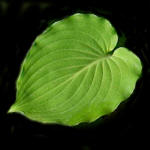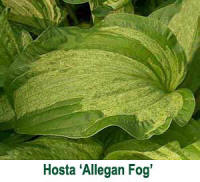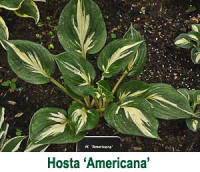 A genus (genera in the plural) is a group of
plants or animals that not only share certain key characteristics
with others in the Family but also display certain unique
characteristics which help to group them together. Each genus is
further separated into sub-groupings called
species. So, a genus may
consist of as few as one and as many as thousands of species.
A genus (genera in the plural) is a group of
plants or animals that not only share certain key characteristics
with others in the Family but also display certain unique
characteristics which help to group them together. Each genus is
further separated into sub-groupings called
species. So, a genus may
consist of as few as one and as many as thousands of species.
The genus name is always capitalized and shown
in italics when printed by machine or when handwritten, is
should be underlined.
Mr. PGC Comment: There is really no big
mystery why these words are italicized or underlined. The simple
reason is that scientific names are not made of English words but
rather, "Latinized" words. So, just like the French phrase,
Parlez vous, or the German, Sprechen zie, the foreign
words of scientific names of plants need to be printed in italics or
underlined to make them stand out.
 When referring to the genus name, it should
appear as Hosta. This would be used in the phrase, "That
plant belongs to the genus, Hosta." However, since this is
also the common name used for this group of plants, it may also
appear just as hosta as in "There are several hosta plants in the
garden". Although I have seen some debate on the issue, the proper
plural is hostas when used as a common name and not hosta. So, you would say, "I have several
hostas in my garden." not "I have several hosta in my garden."
Confusing? Sorry.
When referring to the genus name, it should
appear as Hosta. This would be used in the phrase, "That
plant belongs to the genus, Hosta." However, since this is
also the common name used for this group of plants, it may also
appear just as hosta as in "There are several hosta plants in the
garden". Although I have seen some debate on the issue, the proper
plural is hostas when used as a common name and not hosta. So, you would say, "I have several
hostas in my garden." not "I have several hosta in my garden."
Confusing? Sorry.
 Mr. PGC Comment: Do you realize that
this genus was once called Funkia? After its introduction
from Asia to Europe a couple of hundred years ago, the plant was
thought to have been named after a guy named
Heinrich Christian Funck (1771–1839). Fortunately, at least in my opinion, it was later
determined that the
genus had first been named after
Nicholas Host (1761-1834), an Austrian botanist resulting in the
genus name, Hosta. Since this name showed up first in the
literature, it took precedence.
Mr. PGC Comment: Do you realize that
this genus was once called Funkia? After its introduction
from Asia to Europe a couple of hundred years ago, the plant was
thought to have been named after a guy named
Heinrich Christian Funck (1771–1839). Fortunately, at least in my opinion, it was later
determined that the
genus had first been named after
Nicholas Host (1761-1834), an Austrian botanist resulting in the
genus name, Hosta. Since this name showed up first in the
literature, it took precedence.
Liberty Hyde Bailey's
Cyclopedia of American Horticulture in
1919 listed Hosta as the proper genus name with Funkia being
an out of date alternative. Unfortunately, in the 21st century, you
will still see the name Funkia used in some books, articles and even
on plant name tags occasionally.



